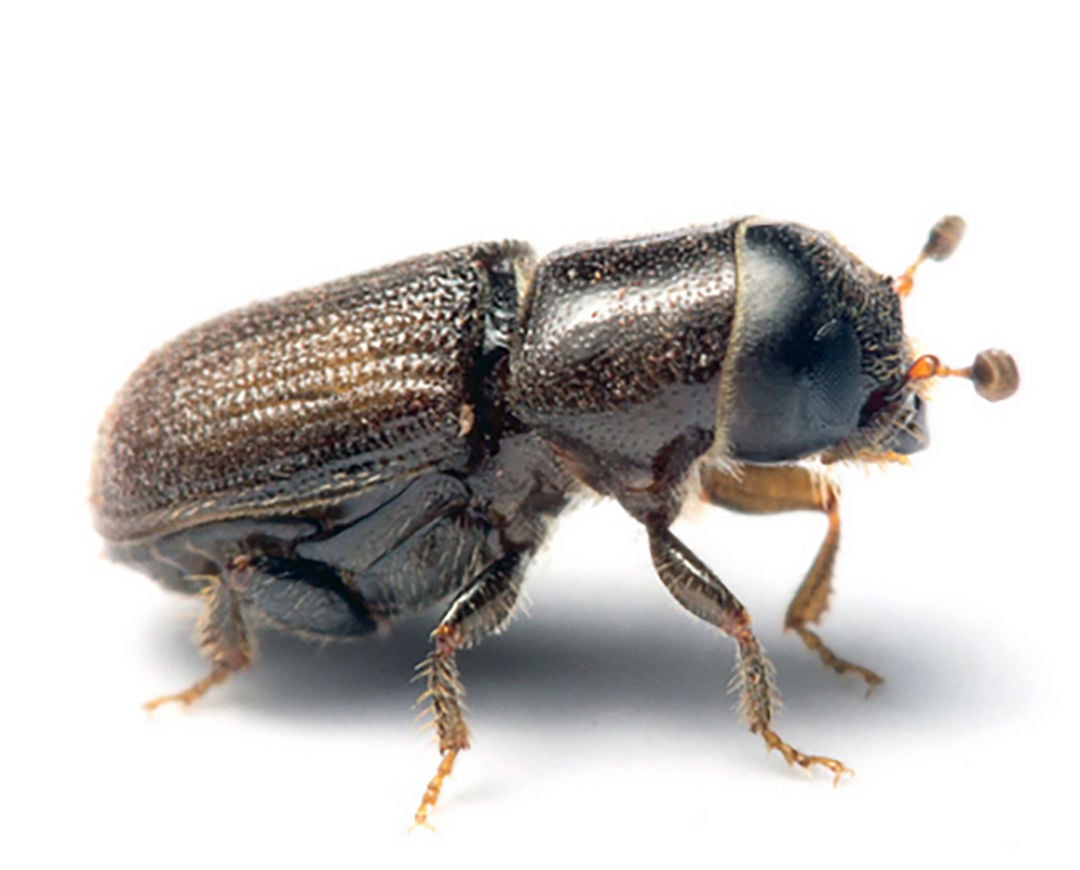Bark beetles are a type of insect that belongs to the family Curculionidae, which is also known as weevils. There are over 6,000 species of bark beetles, and they are found all over the world, from the temperate forests of North America to the tropical rainforests of South America and Africa.
Bark beetles are known for their destructive behavior, as they feed on and bore into the bark and phloem of trees, causing significant damage and often killing the tree. This damage can have serious consequences for forest ecosystems, as it can lead to a decline in forest health, reduced timber production, and increased risk of forest fires.
Bark beetles typically target weakened or stressed trees, such as those affected by drought, disease, or injury. They also tend to attack trees in large numbers, which can quickly overwhelm a tree's defenses and cause significant damage.
There are several different species of bark beetles, each with its own unique behavior and impact on forest ecosystems. Some bark beetles, such as the mountain pine beetle, are native to North America and play an important role in maintaining healthy forest ecosystems by attacking and killing weakened trees, which allows new growth to thrive.
However, other bark beetle species, such as the spruce beetle and the emerald ash borer, are invasive and can cause significant damage to forest ecosystems. The emerald ash borer, for example, is native to Asia and was first detected in North America in 2002. Since then, it has caused the death of millions of ash trees in the United States and Canada, with significant economic and environmental impacts.
Managing bark beetle infestations can be challenging, as there are often multiple factors that contribute to their spread and impact. Climate change, for example, has been linked to an increase in bark beetle populations, as warmer temperatures and drought conditions weaken trees and make them more susceptible to attack.
To mitigate the impact of bark beetles, forest managers often use a combination of methods, such as tree thinning, prescribed burns, and the use of insecticides. These approaches can help to reduce the risk of bark beetle infestations and promote healthy forest ecosystems.
In conclusion, bark beetles are a diverse group of insects that play an important role in forest ecosystems, but can also cause significant damage when populations become too large or when invasive species are introduced. Managing bark beetle infestations requires a comprehensive approach that takes into account multiple factors, including climate change, forest health, and insect behavior. By working to mitigate the impact of bark beetles, we can help to promote healthy forest ecosystems and ensure the long-term sustainability of our natural resources.


Comments
Post a Comment